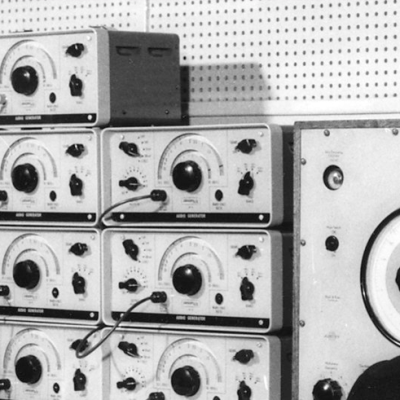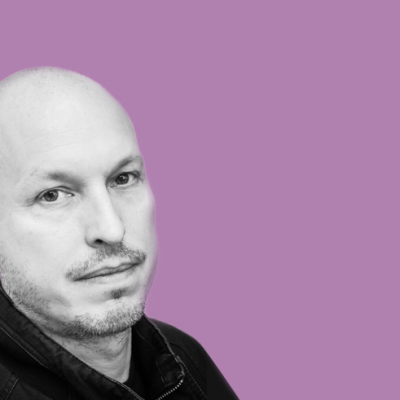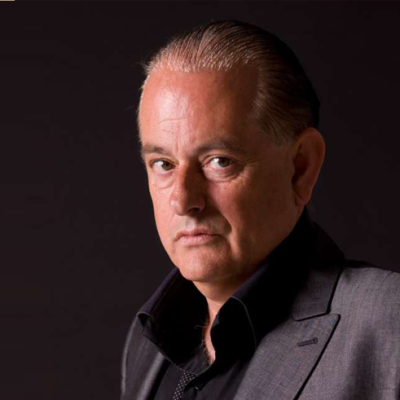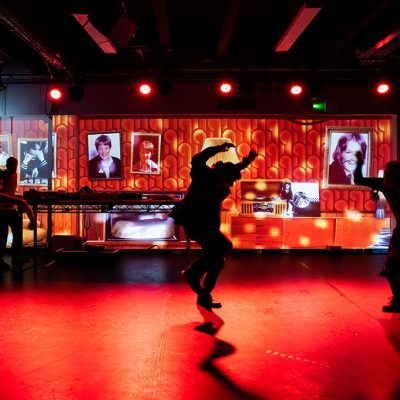Roger Eagle spun the Wheel
Starting there in 1963, Roger Eagle helmed Manchester’s Twisted Wheel to legend status, his upfront mix of rhythm and blues, rock’n’roll, blues, jazz, ska and soul inspiring a generation of Northern music lovers and laying the foundations for what would become Northern soul. In the Wheel’s interconnected cellars he entranced dancers with a diet of imported American records that couldn’t be heard anywhere else, earning £3 a night for seven hours of music. He left for rival club The Blue Note when the Wheel’s owners the Abadi Brothers refused to up this to a fiver. A few months later he opened his own place, the Staxx Club, in a Fountain Street venue that the notorious Jimmy Savile had recently been running as the Three Coins. In later years he was the lifeforce behind Liverpool’s post-punk epicentre Eric’s, where his future-facing jukebox connected a generation of Scouse music-makers. Tall, grumpy and singleminded, Roger was an educator, taste-maker and evangelist for the music he loved. He was very ill for the interview which is why it’s only short; he died the following year.
Interviewed by Bill in Wales, 10.9.98
When did the Twisted Wheel open?
The night I started there: November 24th 1963.
How did you get the job?
I was sitting in the place a week before it opened and I’d just imported a load of Chuck Berry and Bo Diddley albums on Chess and Checker and the guy asked me if I knew anything about rhythm and blues and I said, ‘Yeah.’ So he said, ‘do you wanna DJ here at the all-nighters that are starting?’ And I DJed at every all-nighter for the first three years.
When did you start collecting
1954, rock’n’roll and jazz.
How did you get into DJing?
Basically when I started DJing I didn’t know what I was doing, but I just fell into it. I was just happy playing the music that I loved. I used to take a Grundig tape recorder out to parties and play stuff in the ’50s, but that wasn’t really DJing. I’ve always been a DJ in my bones. My influences were Alan Freed and Gus Goodwin. Gus Goodwin was on Radio Luxemburg in the ‘50s. He was a real wild guy, he used to spin around in his seat, shouting and yelling. His theme tune was ‘Basin Street Blues’ by Louis Armstrong, which features that great drum break by Gene Krupa. Then after that there was Guy Stevens at the Scene Club in London. He used to send me up records.





Did The Wheel start as an all-nighter straightaway?
Yeah.
How did that come about?
Don’t ask me. It’s probably because it was the popular thing to do. It was absolutely rammed right from the word go. Couldn’t get in.
Describe to me what it looked like?
On Brazenose Street off Albert Square. It held 500 or 600. You went downstairs and there were lots of small rooms with a big room for the stage. I was right at the back in a small room where the DJ unit which was sealed by bicycle wheels welded together. There was a coffee bar in between that and the main room.
How did it work. Did you warm up for the band?
No, just me playing and the bands were on. I played seven hours and the band did an hour somewhere in between. Little Walter, T Bone Walker, Screamin’ Jay Hawkins, Jimmy Powell and the Dimensions, Stevie Winwood’s band. Loads of American R&B. John Mayall, Spencer Davis Group.
What were you playing when it opened?
Rhythm & blues, which came before soul. Soul hadn’t been heard of then. The first soul album I heard was ‘The King of Rock’N’Soul’ by Solomon Burke. That was when the music started to change; it got a lot smoother, a lot more danceable.
How did the music develop, because the Motown stuff played later is more pacy than the R&B.
When I started DJing I could play what I wanted, but after three years I had to keep to same tempo, which is what Northern soul is. I started Northern soul, but I actually find the music very limiting, because in the early days I’d play a Charlie Mingus record, then I’d play a Blue Beat disc followed by a Booker T tune, then a Muddy Waters or Bo Diddley record. Gradually, there was this blanding out to one sort of sound.
Did you feel you were getting dictated to by the crowd?
Yeah, because the crowd was mostly into pills by then.
When did that start?
In the beginning everyone came because they loved the music. They came to see the blues singers and they came to hear the records, and for the social aspect. But after two or three years it became pills.
Was that why you left?
Yeah.
Did you carry on DJing?
I’ve always DJed, but I went into promoting and I owned clubs, like Erics. I still DJ today when I’m well enough. I also call myself Jukebox Johnson.
What stuff do you play nowadays?
My taste is the good stuff. Whether it’s blues or soul, jazz, funk, soul. You should come and see me. You’ll get a much broader view from me. I’m not doing the other DJs down; they’ve done well, they’ve made their money. But they’re very narrow, that’s what upsets me. But they don’t listen. They’re all locked into a Pavlovian warp where people react only to a certain kind rhythm and I think it’s depriving people of music.

© Bill Brewster & Frank Broughton














